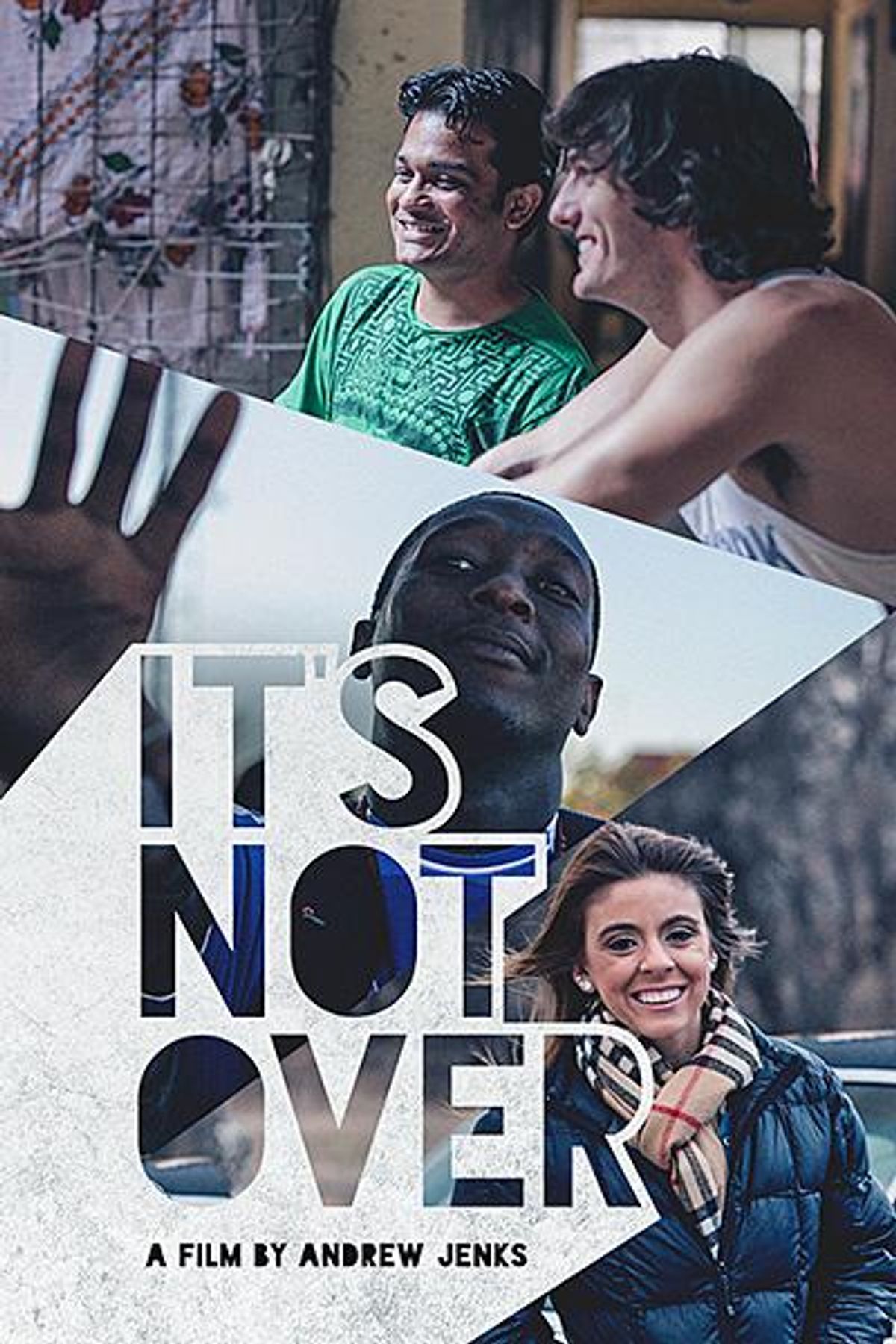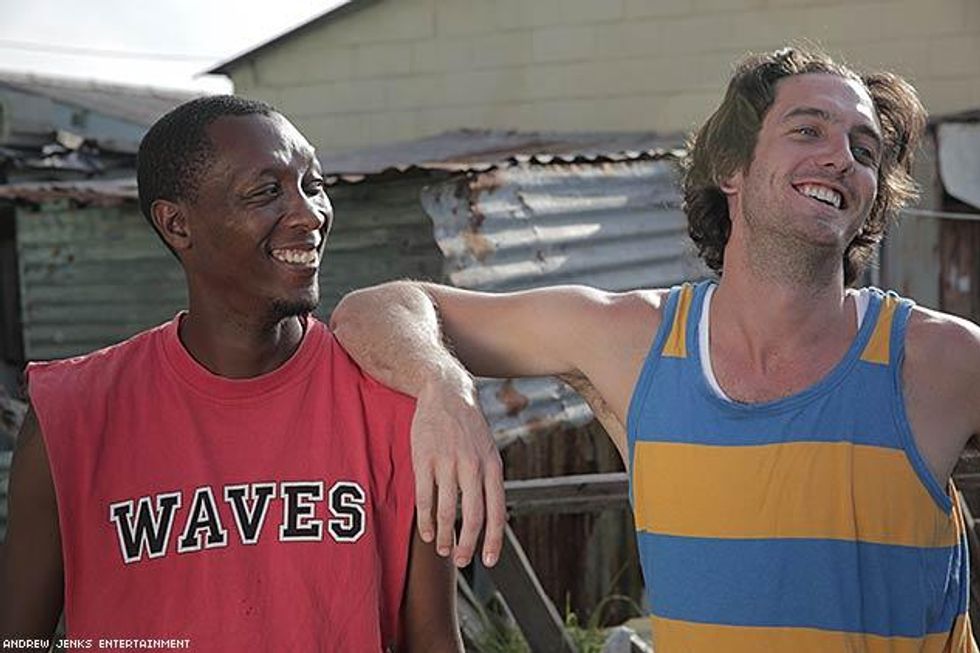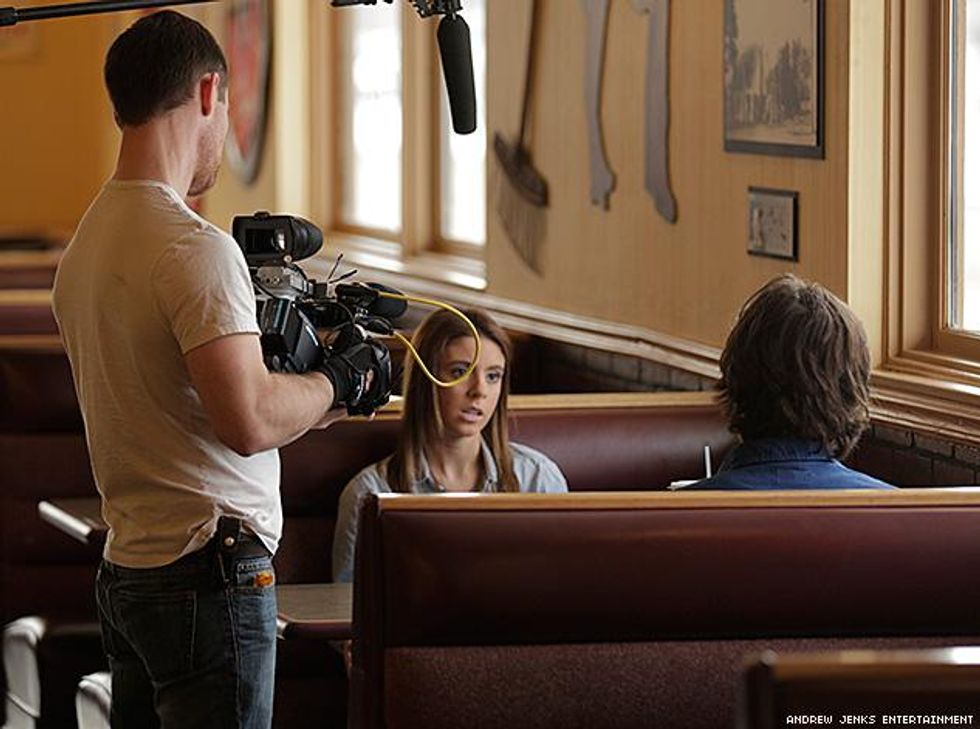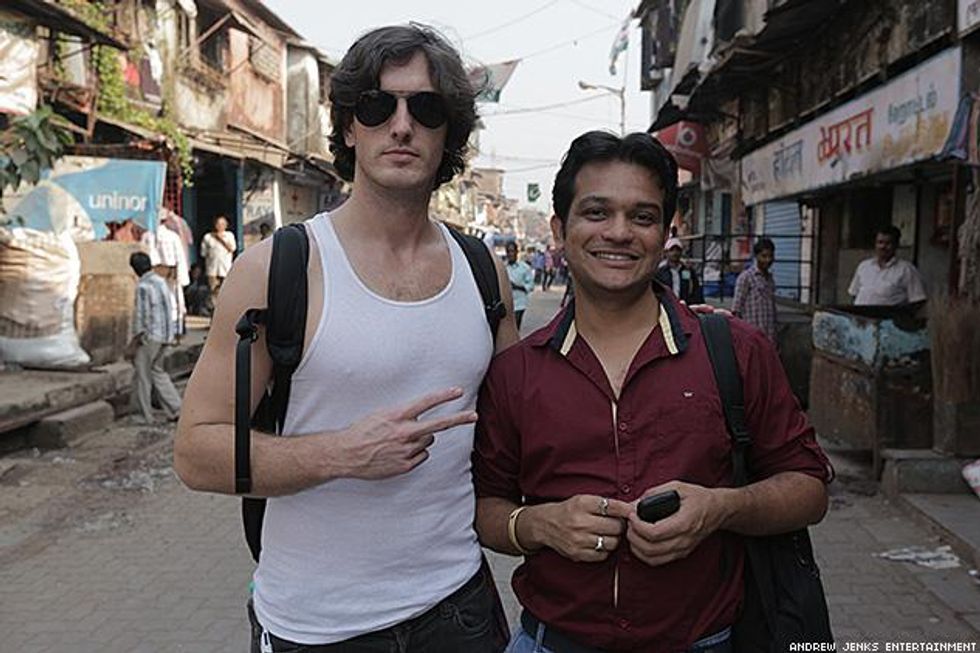“Tell me and I forget. Teach me and I may remember. Involve me and I will understand.” — Chinese proverb
Filmmaker Andrew Jenks begins Its Not Over, a new documentary about HIV and AIDS geared toward educating youth, by splicing together three shots with text from this Chinese proverb. In this opening scene, several children chase and jump on a red truck in a crowded street. "Tell me and I may forget.” A man in crutches and a compact car move across a street in front of corrugated steel huts. “Teach me and I may remember.” A person in a yellow reflective vest herds shopping carts in a parking lot. “Involve me and I will understand.”
The quest for understanding is at the heart of It’s Not Over, a participatory documentary in which Jenks meets three people from different corners of the world whose lives are directly impacted by HIV. In South Africa, Jenks profiles Lucky Mfundisi — a soccer player and volunteer mentor in Khayelitsha, one of the fastest growing towns in the country, which also has one of the highest HIV infection rates. Though he's not HIV-positive himself, Mfundisi took on the task of going into classrooms in order to create awareness of an epidemic that affects 80 to 90 percent of the township. In the United States, the 29-year-old filmmaker follows Paige Rawl, a freshman at Ball State University who was born with HIV. Paige has already received some celebrity for her openness about living with the virus, which is recounted in her recent memoir, Positive. In Mumbai, Jenks meets playwright and director Sarang Bhakre as he produces a play that advocates for same-sex marriage in an effort to promote acceptance of gay people in India. All three stories are interwoven by Jenks, who, along the viewer, learns how HIV impacts all people through very different subjects.
 Above: Lucky Mfundisi and Jenks.
Above: Lucky Mfundisi and Jenks.
Jenks includes a secondary cast in the movie — that of the children in each country, an inclusion that broadens the focus of each narrative. The three main characters are all likable, heroic, and empathetic. But more importantly, their stories serve as access points, or windows, to each respective culture and the impact of HIV on young people.
In portraying the children in Khayelitsha, for example, Jenks shows how adults in the township try to shelter youth as long as possible from the harsh realities of life. HIV is just one problem on a long list of oppressive conditions that Lucky and his people encounter every day. The viewer follows the pair as they walk or bike on dirt roads between corrugated steel huts, showing glimpses of the city's poverty and quality of life. Members of the community talk openly about the legacy of apartheid: lawlessness and rampant drug use, which contributes to the shocking HIV infection rate of more than 80 percent. In a community where everyone seems to have too much time and not enough hope, an epidemic of HIV and AIDS seems almost inevitable.
On the other side of the world, Paige Rawl, a white teenage girl who grew up in Indiana, is pushing back against the stereotypes attached to the face of HIV in America. She talks openly about the toll having the disease has taken on her life. In middle school, she became the target of severe bullying, with students giving her the cruel nickname of "PAIDS" after word of her status spread throughout the class. This, and the added stress of having to bear an adult problem at such a young age, led to stress-induced seizures, a conversion disorder, and suicide attempts.
 Above: Paige Rawl
Above: Paige Rawl
In one scene, Jenks lauds Paige for being so open, honest, and brave. Her reaction — a mix of being nonplussed and annoyed — is one of the highlights of the documentary. Although HIV plays a large part in her life — she tours schools in order to educate her peers about the virus — the documentary also portrays Paige as a normal teenager who talks with her roommates about college and boys, including the drama of dating Hawkeye, her boyfriend.
One of the most endearing segments in the film occurs when Paige reunites with Haley, a young girl whom the teen activist befriended at Camp Kindle, a camp for children with or affected by HIV and AIDS. Jenks allows Haley to articulate the importance of their friendship. But the most important aspects of their relationship do not have to be explained. Haley and Paige play games, perform a dance together that they learned at Camp Kindle, and when Paige prepares to leave, Haley hugs her friend and cries. These are moments of happiness, normalcy, and humanity that any viewer can understand.
 Above: Jenks with Sarang Bhakre.
Above: Jenks with Sarang Bhakre.
The final connection to children happens in Mumbai. The gay playwright Sarang takes Jenks to an orphanage for 11 girls who are HIV-positive. Jenks then visits Falkland Road, the main street in Kamathipura, Asia’s largest red-light district. In the district, Jenks interviews a girl named Monica, who tells a horrific story. Her mother died of complications from AIDS after becoming a sex worker in Mumbai in order to feed her children. The movie implies that Monica is now surviving in the same way her mother did. Jenks intersperses this interview with images and sounds of Falkland Road at night. It is a depressing scene of squalor and noise, and Jenks creates a feeling of horror through his use of audio. A girl screams, provoking no more of a reaction than a car horn. Along with being the most emotionally wrenching scene in the movie, it also instills it with a moral core. Jenks’s outrage is not with HIV and AIDS. His outrage is with the depth of misery that people across the world are expected to navigate and survive.
In It's Not Over, the filmmaker strives to make a very important and profound pivot in his audience’s thinking about HIV. He contends that misery does not prosper in the world because of HIV and AIDS. HIV and AIDS has been allowed to spread, because people have grown to ignore or tolerate human misery. The movie plants the seed of this thesis in the audience’s mind and allows it to mature. It is a story told in tangents and allusions. But the main message of It's Not Over, on a macro level, is that HIV and AIDS is more a symptom than an illness.
It’s Not Over airs on Pivot on World AIDS Day, and is now streaming on Netflix. Watch the trailer below.
It's Not Over Trailer from Its Not Over on Vimeo.

 Above: Lucky Mfundisi and Jenks.
Above: Lucky Mfundisi and Jenks. Above: Paige Rawl
Above: Paige Rawl Above: Jenks with Sarang Bhakre.
Above: Jenks with Sarang Bhakre.














































































